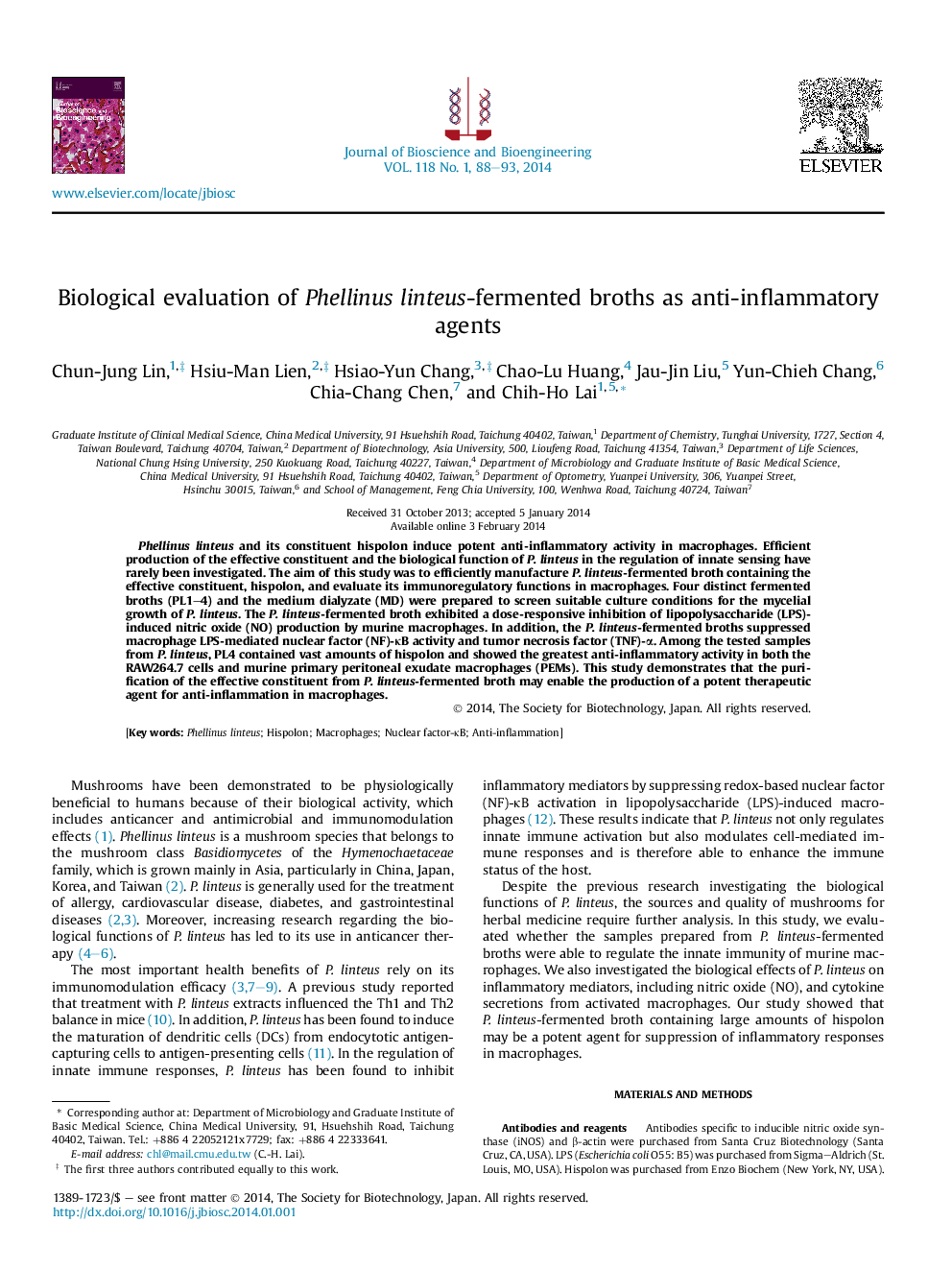| Article ID | Journal | Published Year | Pages | File Type |
|---|---|---|---|---|
| 20540 | Journal of Bioscience and Bioengineering | 2014 | 6 Pages |
Phellinus linteus and its constituent hispolon induce potent anti-inflammatory activity in macrophages. Efficient production of the effective constituent and the biological function of P. linteus in the regulation of innate sensing have rarely been investigated. The aim of this study was to efficiently manufacture P. linteus-fermented broth containing the effective constituent, hispolon, and evaluate its immunoregulatory functions in macrophages. Four distinct fermented broths (PL1–4) and the medium dialyzate (MD) were prepared to screen suitable culture conditions for the mycelial growth of P. linteus. The P. linteus-fermented broth exhibited a dose-responsive inhibition of lipopolysaccharide (LPS)-induced nitric oxide (NO) production by murine macrophages. In addition, the P. linteus-fermented broths suppressed macrophage LPS-mediated nuclear factor (NF)-κB activity and tumor necrosis factor (TNF)-α. Among the tested samples from P. linteus, PL4 contained vast amounts of hispolon and showed the greatest anti-inflammatory activity in both the RAW264.7 cells and murine primary peritoneal exudate macrophages (PEMs). This study demonstrates that the purification of the effective constituent from P. linteus-fermented broth may enable the production of a potent therapeutic agent for anti-inflammation in macrophages.
